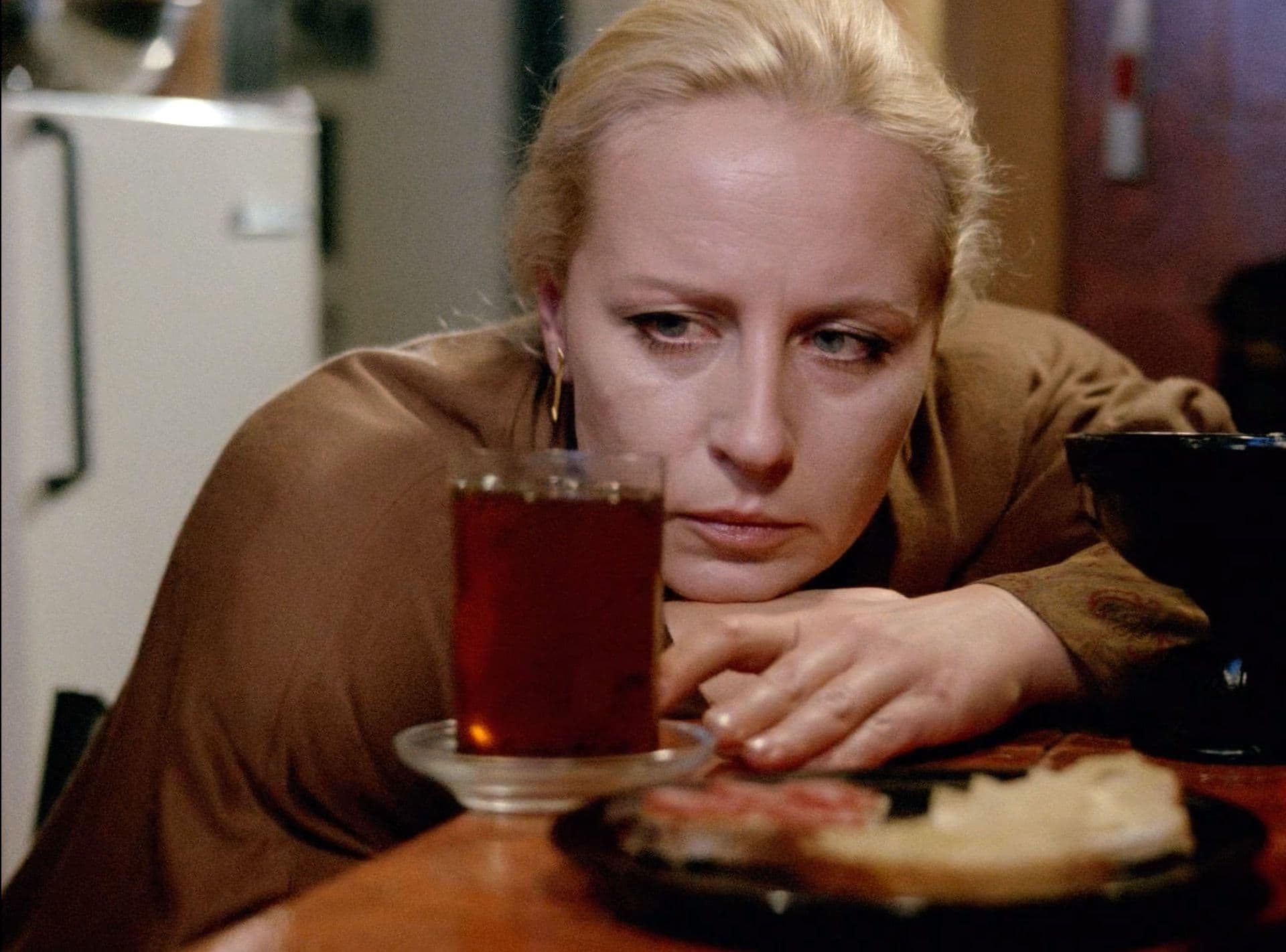
Decalogue
1989
Rate this movie
Average: 0.00 / 5
(0 votes)
Director
A work of such magnitude that it is truly difficult to encompass its boundless semantics in a few words. It is a monolith of thought, a cinematic cathedral erected not with stone and mortar, but with moral dilemmas and existential uncertainties, capable of resonating far beyond the geographical and temporal confines of its genesis.
Kieslowski grapples with the Ten Commandments with an intellectually disillusioned gaze (free from any trace of materialism). His gaze is not that of an atheist contemplating faith, but the speculation of a man confronting the infinite, a secular and profoundly empathetic exegesis of the ethical fabric that for millennia has sought to govern the human condition. It is not a sermon, nor a condemnation, but an almost forensic investigation into the soul, where the divine is not imposed from above, but emerges – or denies itself – from the most recondite folds of everyday life. Each fragment, though set within a specific context of post-communist Poland, then poised between the legacy of a grey socialism and incipient capitalist emancipation, transcends its framework to strike universal chords, revealing the fragility and strength of moral principles when they clash with the most elemental of realities: man and his impulses.
Originally released for Polish television and divided into 10 episodes, one for each commandment, it is a work of granite-like stylistic compactness, yet at the same time possessing a depth of field that disorients. This formal choice, far from being a mere production constraint, proves to be an ingenious narrative structure. The television schedule becomes a mosaic of interconnected lives, often inhabited by the same grey apartment blocks in Warsaw, where characters unknowingly brush past each other, or sometimes interact fleetingly, amplifying the sense of a shared destiny. The almost mathematical rigor of the serial format merges with an intrinsic moral ambiguity, which is the true stylistic hallmark of the work. Each episode dissects the relevant commandment, highlighting contradictions and existential allusions that shatter all dogmatic certainties. It is not so much the commandment itself that is questioned, but its applicability, its interpretation, and its inevitable collision with human fallibility.
Each episode attempts to permeate the divine word through a human story that embodies its message and transfigures it into a crystalline poetics. Kieślowski offers no easy answers, nor scathing judgments. Instead, he exposes the dilemma in all its agonizing irresolvability, leaving the burden of interpretation to the viewer. Here lies his greatness: the ability to elevate the mundane to metaphysical drama, to transform the ordinary into the sublime. The camera becomes a discreet, almost Bressonian eye, observing with relentless lucidity the faces and actions of ordinary individuals, trapped in ethical dilemmas that oscillate between the tragic and the absurd. Often, a mysterious observer, an enigmatic and silent young man, wanders at the margins of the stories, a silent and impassive witness whose presence catalyzes questions about providence, chance, or simply the condition of being a spectator of others' destinies. It is an embodiment of Kieślowski's own "gaze": man's speculation in the face of the infinite, a warning to our conscience.
Kieslowski always plays on dichotomies: faith and knowledge, God and Reason, man and the divine. These antitheses are never resolved, but remain in a state of creative tension, fueling the complexity of each narrative. It is the titanic struggle between Logos and human will, between the sacred and the profane, which blend seamlessly into everyday life. The visual architecture, with its often somber hues interrupted by sudden flashes of color or by light penetrating concrete cracks, evokes a world that is both oppressive and permeable to transcendence. The cinematography, handled by directors of photography like Piotr Sobociński and Edward Kłosiński, helps create a suspended atmosphere, almost a premonition, where beauty is often found in the raw truth of emotions. Zbigniew Preisner's sublime and moving score is not merely an accompaniment, but a character in itself, a musical commentary that amplifies the pathos and sense of spiritual quest, sometimes echoing sacred themes, other times evoking a profound and human melancholy.
The result remains a work of the highest ingenuity, of the purest lyricism, of great directorial technique. If one considers the masters who have plumbed the human soul with such depth – from Bergman, with his constant dialogue with the silence of God, to Dostoevsky, with his investigations into the darkest impulses and possibilities of redemption – one comprehends Kieślowski's stature. "The Decalogue" stands as a monument to the complexity of existence, a moral fresco that questions without judging, that shows without imposing. It is a true culmination of modern cinematography, not only for its thematic and formal audacity, but for its ability to make us look within, to confront our contradictions and that irrepressible need for meaning which, ultimately, is the oldest commandment of all. Its relevance shows no signs of diminishing, because the dilemmas it explores are coeval with man himself.
Genres
Gallery






Comments
Loading comments...